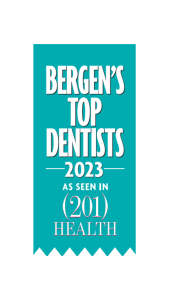Are you looking to achieve a natural picture-perfect smile? Among our many cosmetic dentistry offerings at Chestnut Ridge Dental are veneers, which are thin shells custom-fitted to the front of your teeth. Veneers are a popular way to aesthetically improve your smile with ease, but are they right for you? Read on to learn about the longevity of dental veneers and what you can do to make them last longer.
Are Dental Veneers Permanent?
The quick answer is no, veneers are not permanent, but how long they last largely depends on the type and upkeep of your dental veneers. According to The American Dental Association, the two main types of veneers are porcelain veneers and composite veneers. With advanced strength and stain resistance abilities, porcelain veneers tend to have lifespans of over a decade; the American Academy of Cosmetic Dentistry reports that porcelain veneers last an average of 12 years. Alternatively, because composite veneers are not as durable or stain resistant as their porcelain counterpart, they generally last about three years.
Using state-of-the-art stain resistance technology and a combination of quality materials, veneers from Chestnut Ridge Dental guarantee a shiny smile that lasts. A flawless smile can not only be maintained but maximized with unique veneers at Chestnut Ridge Dental.
Can Dental Veneers Be Replaced?
Since they do not last a lifetime, porcelain veneers may frequently be replaced within the 10–15-year range due to discoloration, deterioration, or chips and cracks. While the veneers themselves are not permanent, know that the procedure itself lasts a lifetime. The removal of tooth enamel is necessary for veneer placement, and this lost enamel cannot be restored post-veneers. As a result, you can never go back to your natural teeth after getting veneers.
There are key signs to look out for when deciding if it is time to replace your dental veneers:
- Cracks or Chips in Veneers: Leaving an unattended crack or chip in your veneer makes the natural tooth underneath more susceptible to bacteria and may even impact your ability to chew properly.
- Receding Gums: The tooth underneath your veneer starting to become exposed could indicate gum disease or poor oral hygiene. In either case, replace your veneers if your gums are receding and closely monitor the condition of your natural teeth and gums.
- Darkness or Staining: While a variety of factors like smoking and age contribute to discolored veneers, replacement is essential to restore your smile since veneers cannot be whitened in the same manner as natural teeth.
How to Make Dental Veneers Last Longer
Making the most out of your investment in veneers largely depends on lifestyle choices. Effective ways to avoid premature dental veneer damage include:
- Maintain Basic Dental Care: Brushing your teeth, flossing, and keeping up to date with dental appointments are essential to maximizing the lifespan of your veneers. While veneers cannot get cavities, the teeth under and surrounding them can.
- Avoid Biting Your Nails or Anything Hard: Biting your nails or any hard object or food can greatly damage your veneers.
- Watch What You Eat & Drink: Common culprits of veneer staining include coffee, red wine, tea, and dark-colored fruits like blueberries and blackberries.
- Avoid Grinding Your Teeth: While teeth grinding and clenching are mindless habits that many people engage in, wearing a nightguard might be necessary to ensure veneer health if you fall into this category.
- Be Active with Caution: When engaging in any activity that could put your mouth in harm’s way such as a sport, wear a mouthguard to keep your veneers safe.
Dental Veneer Consultations at Chestnut Ridge Dental
Chestnut Ridge Dental is committed to excellence, and your smile is no exception. Call Chestnut Ridge Dental at (201) 391-4466 for personalized care from our team of seasoned dentists to start the journey to fulfilling your veneer vision!





